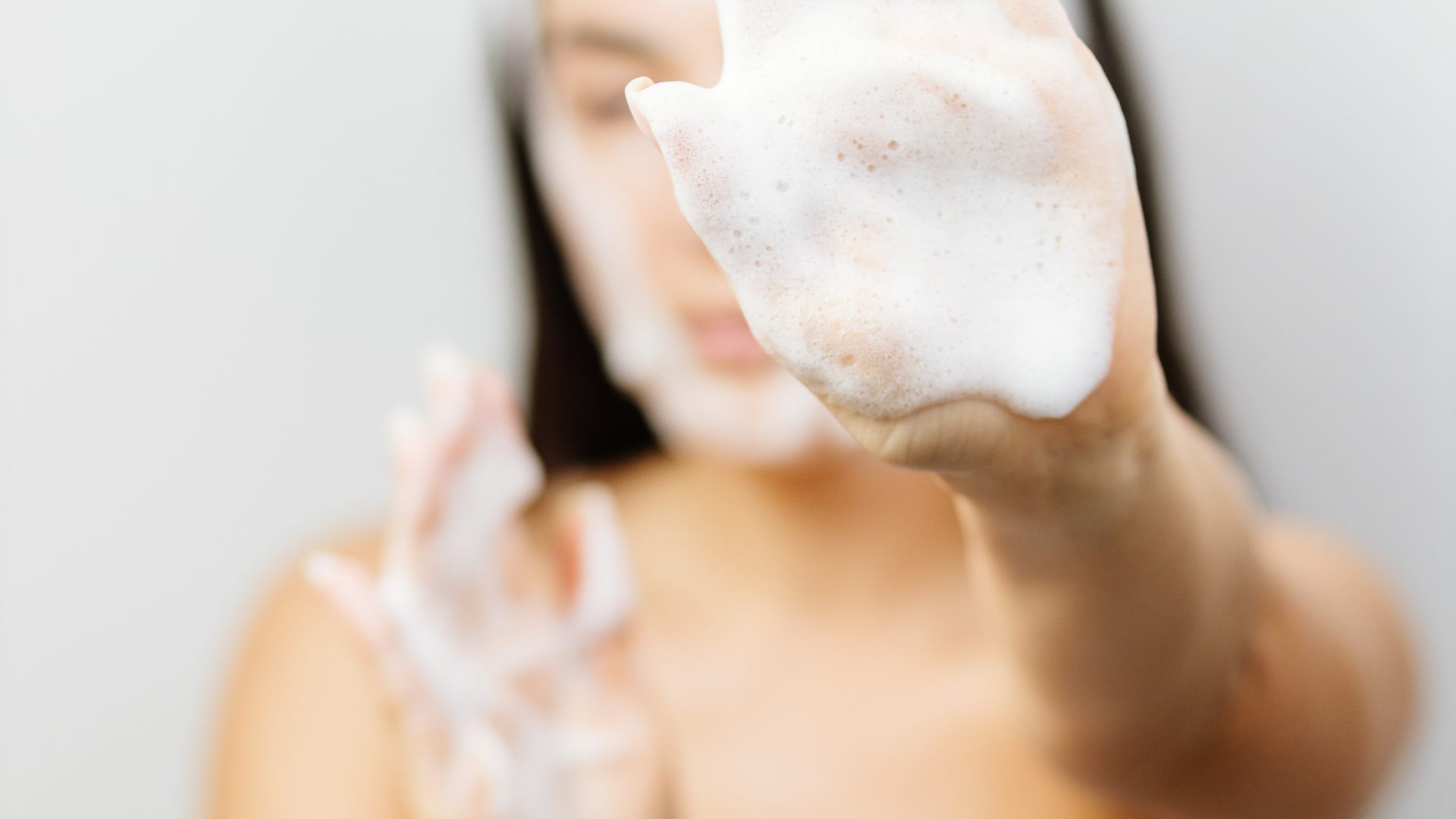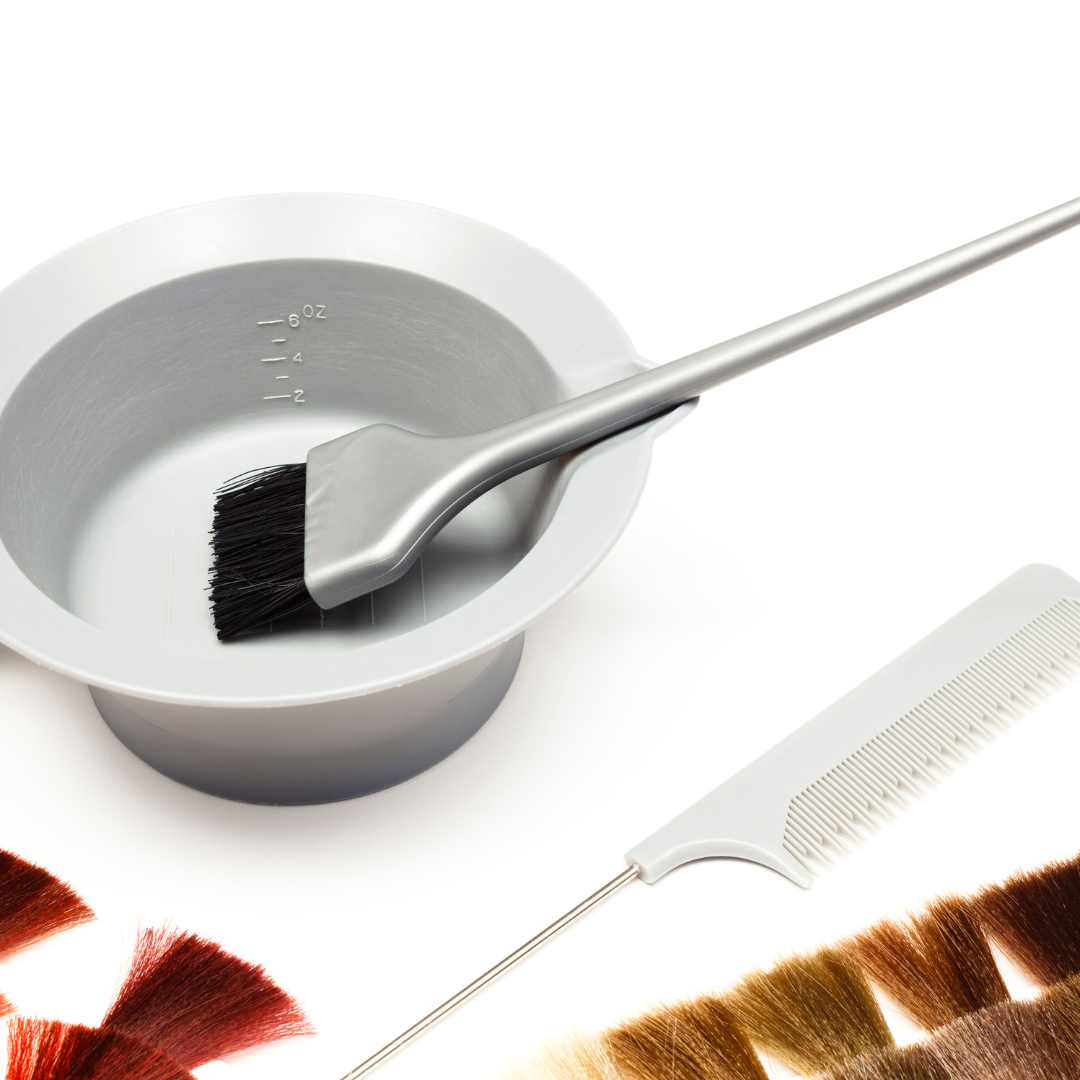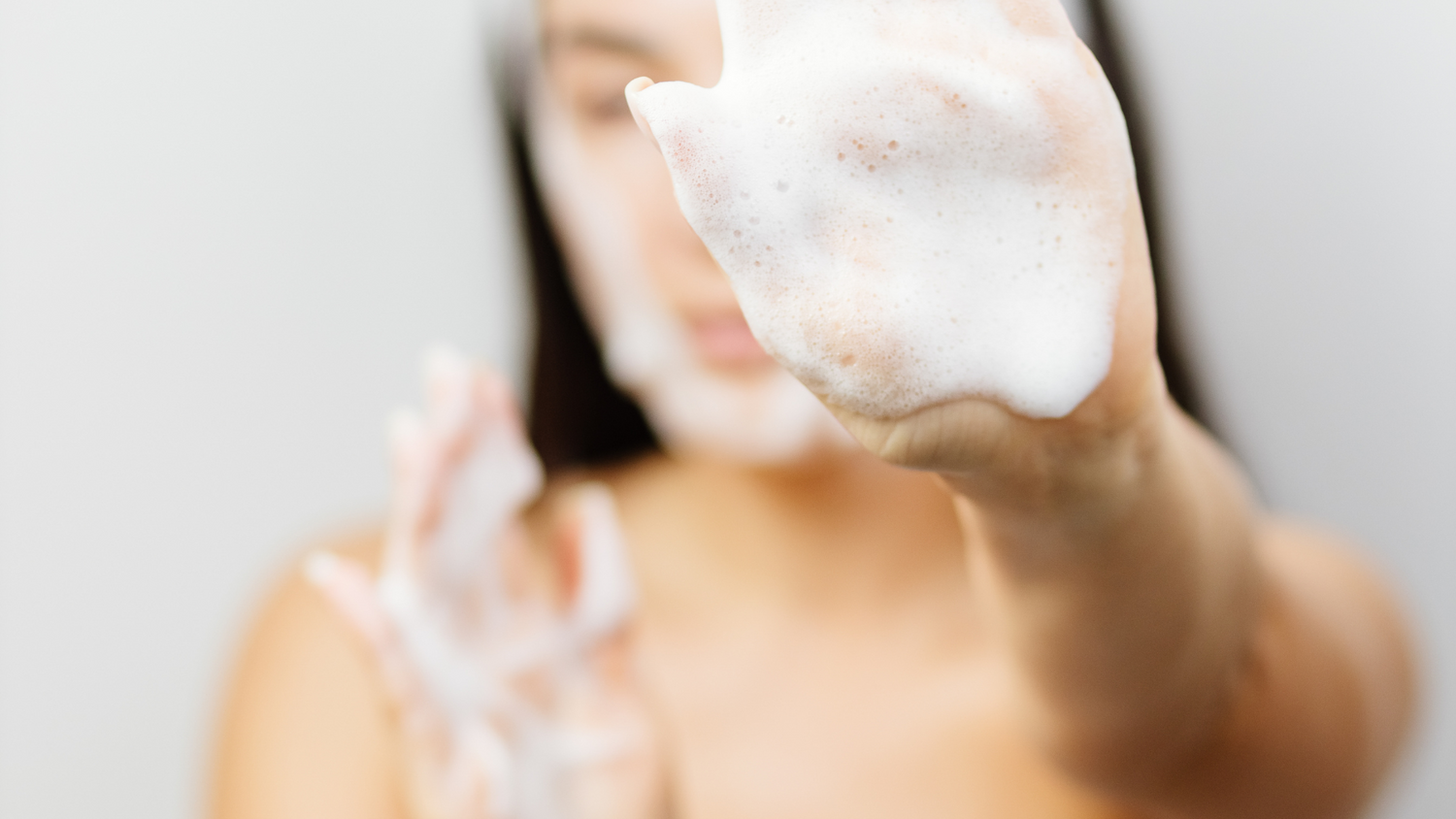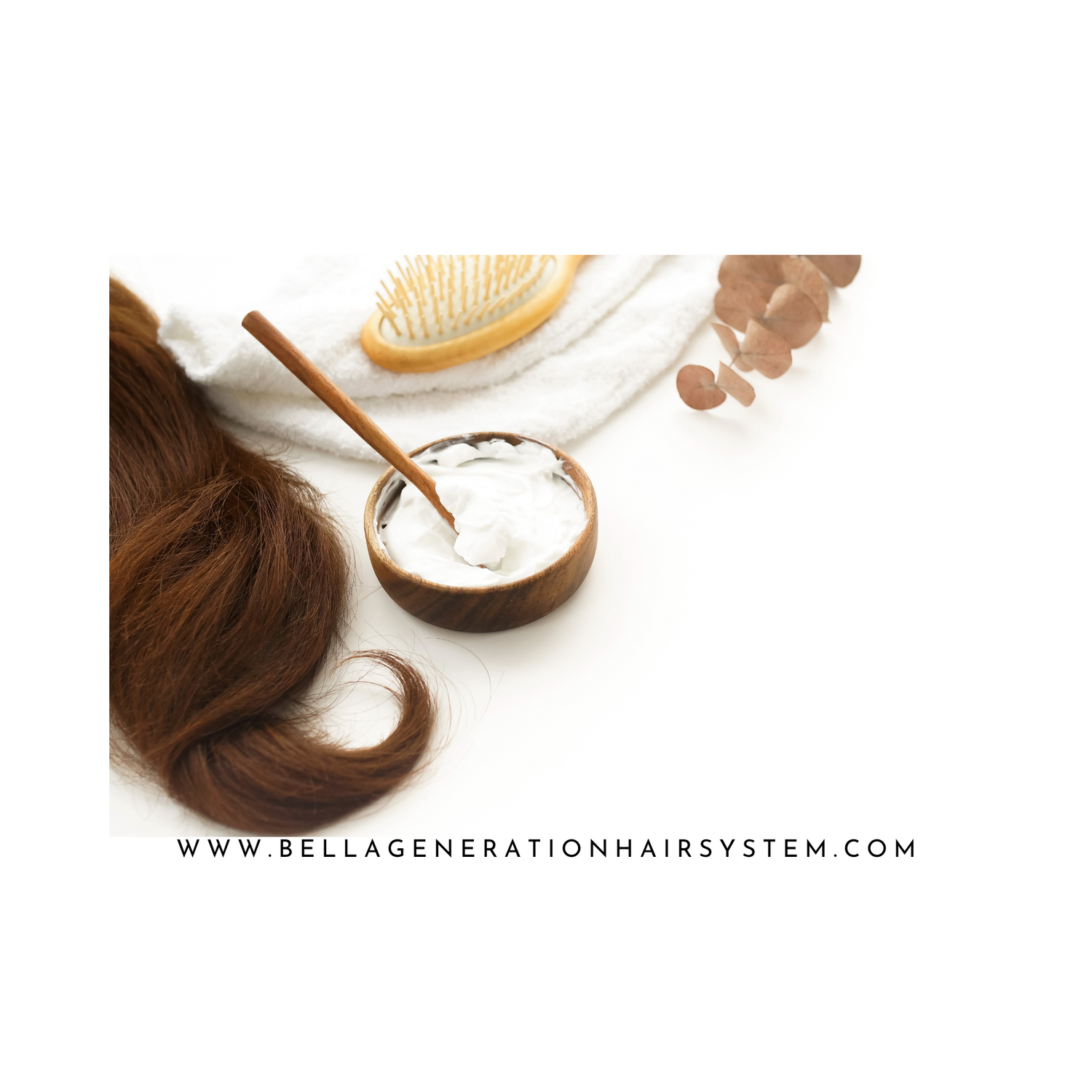
In 2022, we witnessed a sudden surge of hair care product recalls. The reason was that these products contained cancer-causing agents.
Brands like Proctor & Gamble and Unilever recalled almost two dozen brands because they contained an elevated level of benzene known to cause leukemia.
The Australian Academy of Science said the average cosmetic product contains 15-50 synthetic ingredients.
Although most consumers are not scientists, we have the internet and can look up these ingredients to find out what they are and how they affect the body.
Take it from me that removing toxic chemicals from my hair routine is why I was able to BellaGeneration My Story">grow my hair back after losing it to chemo and radiation therapy.
In this post, I will show you why foaming agents used to make lather in shampoos wreak havoc on your hair and health and how you can reverse the damage.

What is the History behind Lather in shampoo?
Lather in shampoo is made possible by a detergent or surfactant known as sulfates. Sulfates make your shampoo foam and bubble and lather.
Sulfates were introduced to modern hair care in the 1930s by Procter and Gamble. But what did people use for soap before then?
Well, in pre-Babylonian times, soap as we know it did not exist. People just used plain water to clean themselves. The first time we see soap recipes is not until around the time of ancient Babylonians.
A deep dive into the history of soap will show that other civilizations like Mesopotamians, the Egyptians and the Romans had their version of soap. Archaeologists discovered an entire soap factory in the rubble of Pompeii.
making The basics of soap-making remained consistent across all civilizations, with some animal fat mixed with some ash.
Wealthy people were able to pay others to make soap for them. The people who were not wealthy just made soap at home for their immediate household.
People went centuries without sulfates in their soap, so why were sulfates suddenly introduced?
World War 1 happened! An increase in injuries and a need to clean medical instruments on a larger scale caused the demand for soap to increase.
The old ways of making soap were no longer feasible. It took too long to accumulate animal fat and ashes.
The world needed a faster way to produce soap and to make it readily available for consumers. Science came through! With the help of synthetic compounds (sulfates), detergents were born.
Sulfates are a derivative of petroleum. They took the world by storm because they were powerful, inexpensive, and easy to acquire.
Would you be shocked to know that sulfates are so powerful; they are also used in fertilizers, leather processing, degreasing heavy machinery, and sewage treatment?

Does shampoo need to lather?
Shampoo does not need to lather.
The amount of lather does not influence the cleaning power of shampoo, yet consumers are obsessed with lather. The truth is that shampoo lather is created artificially with sulfates.
The marketing world has been working hard for generations trying to make you believe; that you cannot get your hair clean without lather.
The more they draw your attention to bubbly lather, the more money they stand to make.
Natural shampoos do not lather as much as commercial shampoos because they do not contain sulfates. Some may not lather at all.
The cleaning power of natural shampoos comes from their plant power. These non-toxic plant extracts and essential oils clean the hair gently by removing dirt without stripping hair of its natural moisture.

What effects do sulfates have on the hair and body?
An article from Medical News Today said the most common sulfates found in store-bought shampoos include sodium lauryl sulfate, sodium lauryl sulfate, and ammonium lauryl sulfate.
The effect of sulfates on the hair and body can be as minimal as dry hair and scalp irritation. But severe inflammatory reactions can occur for millions of people allergic to sulfates.
The Food and Drug Administration (FDA) and the Cosmetic Ingredient Review monitor the cosmetic industry in the United States.
Their response about sulfates is that sulfates will not kill you. However, the Cosmetic Ingredient Review acknowledges that sulfates have a degenerative effect on cell membranes and can cause severe eye and skin irritation if not washed off immediately.
Sulfates are so effective at cleaning that they strip away all moisture leaving your hair dry and unhealthy. Dry hair is one of the biggest culprits to why your hair will not grow or retain length.
If you have the following issues, sulfates in shampoos may be making your bad situation worse:
- People with sensitive skin
- People with dry, frizzy hair
- People with dyed and chemically altered hair
In Conclusion
Environmental pollutants bombard our immune response system every day. Cosmetic products further assault our immune response system.
Since sulfates used in industrial products are potent, would it stand to reason that those same sulfates would cause hair damage?
Preventing additional stress and dryness by reducing your exposure to sulfates; is the key to healthy hair.
BellaGeneration’s 2-in-1 natural shampoo and conditioner is the solution that educated consumers need. Check out our line of products that address all hair types.
Click Here to Shop Plant Based Shampoo
Got Questions or Comments?
Email us: info@bellagenerationhairsystem.com







